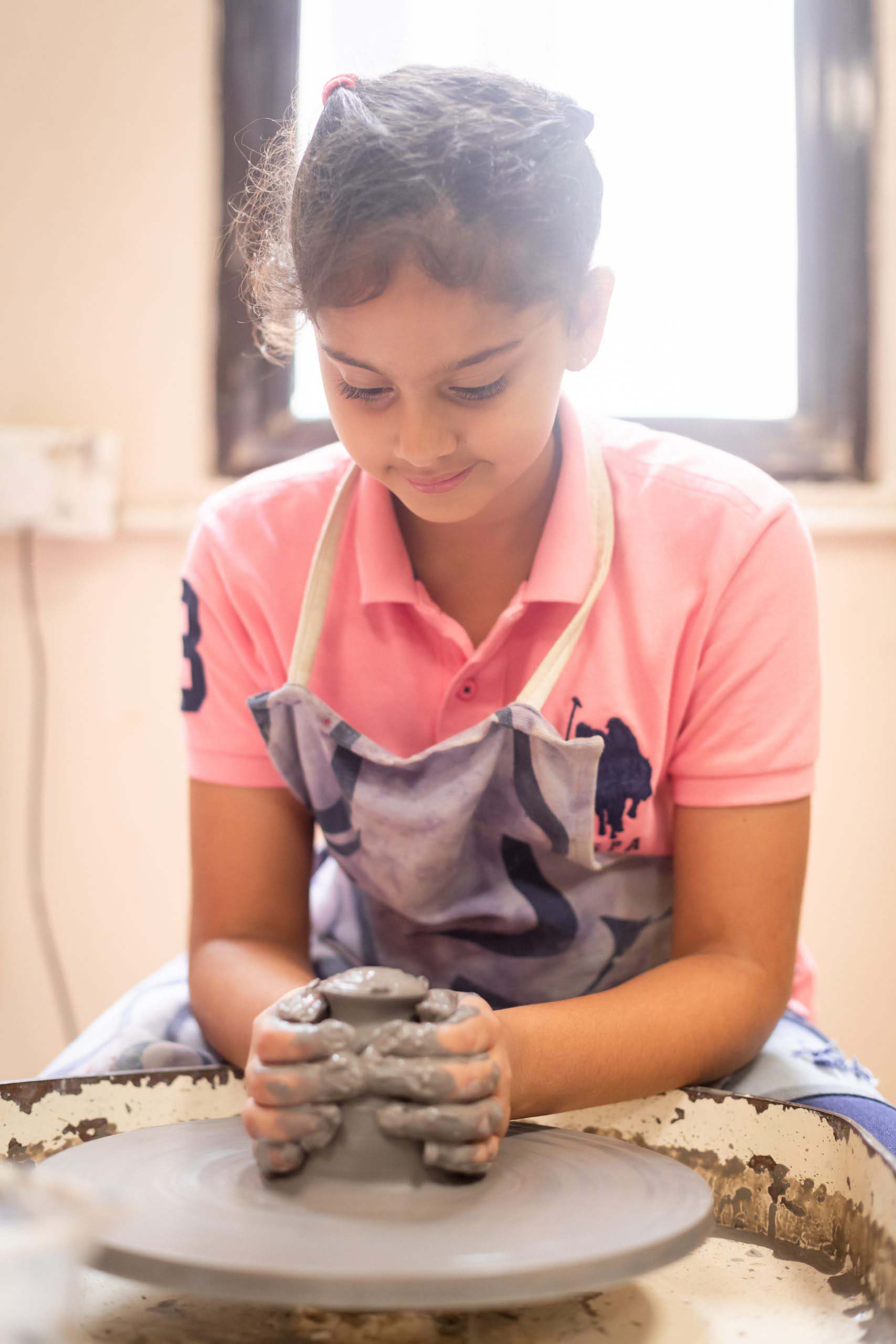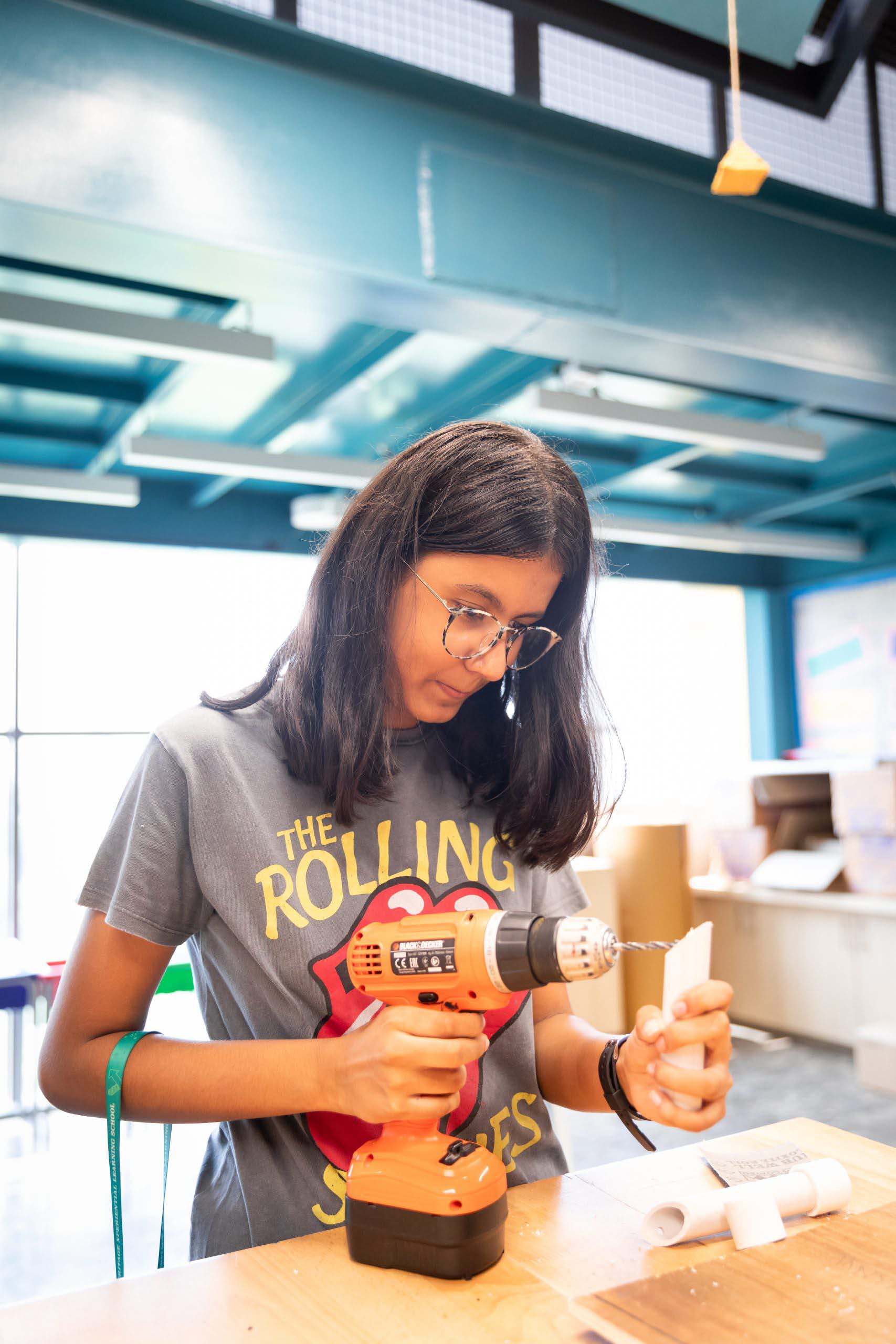Curriculum Delivery and Assessments
Construct Validity
The international curricula of IGCSE and IB place the highest priority on construct validity—that is, that our assessments test the traits and abilities that they are intended to test. As well as promoting learning and providing sound measurement, assessments in the international curricula of IGCSE and IBDP demonstrate international mindedness, are objective and fair, evaluate higher order thinking skills as well as cognition, include a range of knowledge and understanding performances, and use various means of assessment.
Ongoing
The school believes that assessment should be continuous and transparent to provide feedback of the learning process to students. Assessment at Heritage International Xperiential School is designed carefully to meet the purposes its results are used for. A well-planned assessment system at HIXS offers diverse information about student needs. This in turn leads to well-informed decision making about those students, especially in assisting teachers to accurately predict student performance. Effective assessment is a balance between formative tasks to assess for learning and summative tasks that provide an overarching assessment of learning. Teachers at HIXS spend time with instructional coaches and learn to design a balanced assessment system using the strengths of formative, interim, and summative assessments to address instructional goals.

Multiple Strategies
Assessment can mean any of the different ways in which student achievement can be gathered and evaluated. In Middle School we do not have any term exams. So, we use multiple assessments strategies and evaluation tools to inform our teaching and learning. In order to cater to the rigorous expectations of IGCSE assessments, students experience a variety of assessments during his/her two -year journey of Middle School. The single most important aim of assessment is that it should support curricular goals and encourage appropriate student learning. IGCSE and IB DP assessments measure students’ achievement levels against published criteria that are derived from the course aims and objectives. Final assessment is rigorous criterion-related performance assessment. To achieve the top grades, students are measured against standards-based and outcomes-based strands that differ from norm-referenced tests in the analysis and interpretation of student responses than they do in the kind of questions set.
Inform Student Goals and Teaching
Standards of achievement are required to demonstrate mastery on a criterion-referenced with the grade descriptors. The grade descriptors across grades intend to help teachers explain the academic requirements of the Heritage International Xperiential School N-12 programme and ascertain achievement grades. The assessment practices aim to motivate students to become self-directed learners by setting goals, clarifying learning targets, taking feedback and reflecting on their growth and challenges. Students and teachers regularly analyze data from assessments, reflections and student work to inform the student goals and teacher’s lesson.

Some other aspects of assessments at HIXS include:
- The Assessment Cycle: Assessment itself is learningAssessment in the traditional system is thought of as a tool, which can lead to positive or negative outcomes for those being evaluated with them. In education, assessment has often been divided into formative (assessment for learning) and summative (assessment of learning). Today, there is a strong movement for “assessment as learning” that focuses on the role of students as a critical connector between assessment and learning. With reflection and critical analysis of their own learning, students take responsibility for their own learning with teachers as their ‘guide on the side’. In the assessment cycle students become comfortable with all different kinds of assessments. Many assessments in the IGCSE and IB Diploma are diverse in nature from the multiple-choice questions for understanding to carried out over a prolonged period, and at other times, they take place over a few hours.The process of assessments is thought of as a continuous cycle whereby each stage is informed by the previous stage and leads into the next stage. The internal assessments in the IB Diploma take students through various stages- each stage being a sequence of learning. In middle school, SLFCS and Passage portfolios are examples of assessments as learning through stages of goal setting to action plan based on the feedback by teachers and a panel of expert audience.
- Student-led: Internal assessment provides individual students with the opportunity to select their own topic or issue, following a particular interest and giving them greater control over their own learning. This flexibility of approach makes internal assessment a valuable addition to students’ education, improving the validity not only of the assessment process, but also of the learning experience as a whole. Internal assessments give an opportunity for in-depth inquiry into a focused topic intended to promote high-level research and writing skills, intellectual discovery and creativity. Internal assessment in each subject in the IB Diploma Programme allows for components/tasks to be included in the assessment model that provide evidence of student achievement against objectives that do not lend themselves to external examination. Students produce work for internal assessment, some of which is marked by teachers according to subject-specific criteria, and then moderated by external examiners.
- Academic Writing: Multiple Drafts and Feedback for Research: Teachers at HIXS consider academic writing as a constant process of revision based on successive drafts in which rewriting is more important than writing, and requires an assessment of the process more than of its result. Most projects, formative and internal assessments at HIXS are ongoing and are a combination of knowledge application as well as an application of a variety of skills. The planning process involves identifying student deadlines (self-led) as well as scheduling time for support sessions; deadlines are planned in the department for feedback and reflection. Students formulate arguments clearly and coherently, as well as draft and proofread their own work.Effective visual and written reflection strategies are included in the form of photographs, mind-maps, diagrams, flow-charts, planning/ data collection strategies, etc., are taken up in the Middle School onwards as to train our students for the extensive research-based assessments in the global perspectives in IGCSE, internal assessments of the IB subjects and IB core of Theory of Knowledge (TOK) and Extended Essay (EE).
- Use of Technology, Formulae Booklet and Calculators in Assessments: Technology will not drive the choice of approaches to assessment but to create meaningful assessment for students, the IGCSE and IB DP is committed to using technology and tools to improve the quality of what can be assessed, not using it for the sake of having it. Many topics within the IGCSE and IB DP mathematics courses lend themselves to the use of technology. Graphical calculators, dynamic graphing software, spreadsheets, simulations, apps, dynamic geometry software and interactive whiteboard software are just a few of the many kinds of technology available to support the teaching and learning of mathematics.In the IGCSE and IB Diploma while memorization plays a role, but no student is at a disadvantage for not remembering the formulae in the exam and formulae booklets are at their disposal in math and science both. Students can also use technology to engage with the learning process in many ways, including in developing and enhancing their own personal conceptual understanding, searching for patterns, testing conjectures or generalizations, justifying interpretations, collaborating on project-based work and helping organize and analyse data.
- Set expectations for High Quality Work and Academic Achievement:
Approaches to learning in IGCSE and IB DP and (HOWLs) Habits of Work and Learning (HOWLs) in the Middle School are very important as ‘how to learn’ skills. Approaches to teaching and learning include deliberate strategies and skills that demonstrate the IB’s explicit commitment to change the way our students are prepared for assessment and by inspiring the development of the IB learner profile attributes a lifelong quest for learning.What is of paramount importance in the pre-university stage is not what is learned but learning how to learn … What matters is not the absorption and regurgitation either of fact or pre-digested interpretations of facts, but the development of powers of the mind or ways of thinking which can be applied to new situations and new presentations of facts as they arise.” (Peterson 1972)Thus, it is imperative to hone the following skills explicitly and teachers put in the focused effort on strategies, practices, techniques, and not just on the content of the unit.






 Message us
Message us
 TOP
TOP